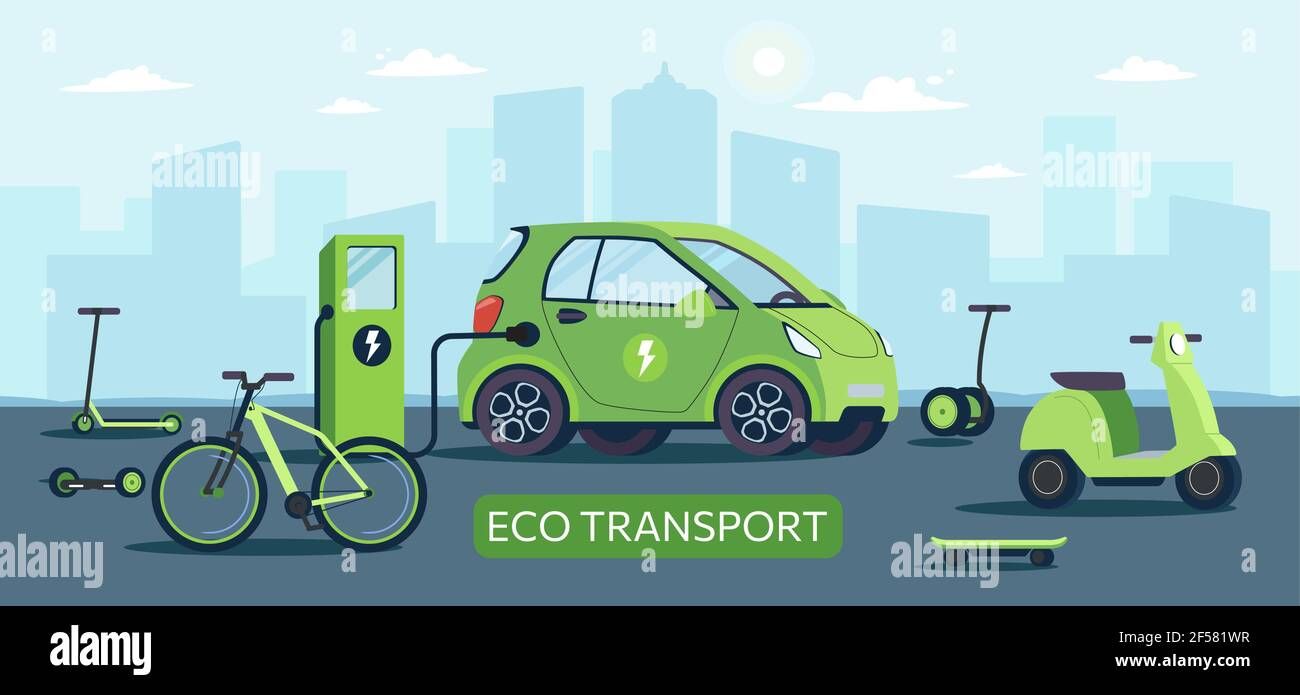In recent years, sustainable modes of transportation have become increasingly popular as people aim to reduce their carbon footprint and contribute to a greener environment. Among these alternatives, electric bikes (e-bikes) and electric scooters have gained significant attention. This article explores the benefits of these sustainable transportation options and how they are shaping the future of urban mobility.
Electric Bikes
Electric bikes, or e-bikes, are bicycles equipped with an electric motor that assists with propulsion. They are revolutionizing the way we think about commuting and recreational cycling.
Benefits of E-Bikes
E-bikes offer several advantages over traditional bicycles:
Effortless Commuting: With the assistance of the electric motor, riders can cover longer distances and conquer hills with ease, making commuting less physically demanding.
Environmental Friendliness: E-bikes are powered by rechargeable batteries, meaning they emit zero or significantly less harmful emissions compared to gas-powered vehicles, reducing air pollution and contributing to cleaner cities.
Cost-Effective: They require less maintenance and are more affordable to operate than cars or motorcycles, making them an economical choice for daily commutes.
Health Benefits: While e-bikes provide electric assistance, riders still engage in physical activity. Regular use of e-bikes can improve cardiovascular health and help individuals stay fit.
Electric Scooters
Electric scooters have swiftly gained popularity, especially in urban areas, as a convenient and sustainable means of transportation.
Advantages of Electric Scooters
Electric scooters offer numerous benefits:
Efficiency: Electric scooters are an efficient mode of transportation, allowing riders to navigate through traffic-congested areas easily.
Improved Air Quality: By using electric-powered scooters instead of gas-powered vehicles, we can reduce harmful emissions and contribute to cleaner air quality in cities.
Compact and Portable: Electric scooters are lightweight and foldable, making them easy to carry, store, and park. They are ideal for short trips and can be conveniently taken on public transportation.
Affordability: Compared to other modes of transportation, electric scooters are relatively inexpensive to purchase and maintain, making them a cost-effective option for daily commuting.
The Future of Sustainable Urban Mobility
E-bikes and electric scooters are not just passing trends but actual game-changers in sustainable urban mobility. The integration of these modes of transportation into city infrastructure can significantly reduce greenhouse gas emissions and traffic congestion.
Municipalities around the world are recognizing the potential of e-bikes and electric scooters and implementing bike-sharing and scooter-sharing programs. These initiatives provide individuals with affordable and sustainable alternatives for short-distance travel, making a positive impact on overall urban transportation systems.
Challenges and Considerations
Despite their many benefits, e-bikes and electric scooters also present challenges that need to be addressed:
Safe Infrastructure: Adequate infrastructure such as dedicated bike lanes and scooter parking zones is crucial for the safe integration of e-bikes and electric scooters into cities.
Regulations: Clear regulations and guidelines are necessary for the responsible use of e-bikes and electric scooters. These should cover speed limits, parking rules, and rider safety.
Education: Proper education and awareness campaigns are required to ensure that riders are well-informed about the rules and safety measures associated with e-bikes and electric scooters.
Conclusion
E-bikes and electric scooters are revolutionizing sustainable transportation options and reshaping urban mobility. Their numerous advantages, ranging from reduced emissions to cost-effectiveness and improved health, make them attractive alternatives to traditional modes of transport. As cities continue to develop sustainable infrastructure and implement necessary regulations, e-bikes and electric scooters will undoubtedly play a significant role in creating a greener and more efficient future of transportation.

